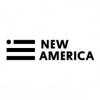New America

Coalition Calls on FCC to Enhance Lifeline Benefits To Provide Instant COVID-19 Relief
Eight groups called on the Federal Communications Commission to provide support for unlimited talk and texting for recipients of its Lifeline program subsidy.

The Transparency Report Tracking Tool: How Internet Platforms Are Reporting on the Enforcement of Their Content Rules
Today, transparency reporting on issues such as government requests for user data is considered an industry-wide best practice for technology and telecommunications companies. Over the past few years, internet platforms such as Facebook, Instagram, Twitter, and YouTube have also begun publishing transparency reports that outline how they are enforcing their own content policies and rules. This reporting has been expanded to include a number of metrics and categories of content that are unique to these types of platforms.

Open Technology Institute is declining further funding from Facebook
As the country confronts its long, deeply rooted history of racism, we must all acknowledge our own role in racist systems and make changes to ensure we are part of the solution, rather than the problem. With over 2.6 billion users, Facebook has a clear responsibility to reckon with its role in these systems or risk continuing to facilitate oppression that imperils Black lives. Despite repeated calls to action from inside and outside the company, Facebook has long struggled with this responsibility.

Getting to the Source of Infodemics: It’s the Business Model
This report argues that Facebook, Twitter, and Google’s targeted advertising business models, and the opaque algorithmic systems that support them, are the root cause of their failure to staunch the flow of misinformation. This report reinforces the need to adopt a human rights framework for platform accountability.

Community Broadband: The Fast, Affordable Internet Option That's Flying Under the Radar
With at least 20 million people across the United States lacking broadband service, community and tribal broadband networks offer a much-needed opportunity to expand and improve internet access across the country. These networks, which include municipal or public option networks, today serve more than 900 communities nationwide.

OTI Says FCC’s Deregulation Order Undermines Public Safety
The record shows extensive opposition to the Federal Communications Commission’s 2017 Restoring Internet Freedom Order and the grave danger it poses to public safety and public health, particularly during the COVID-19 crisis. Public health and public safety officials detail in the record how both officials and the public writ large rely on mass-market retail broadband internet access services (BIAS).

Promoting Platform Interoperability
Interoperability is a promising lever for regulators to use in their efforts to oversee and correct monopolistic abuses amongst the dominant online platforms. It has a unique ability to promote and incentivize competition—especially competition between platforms—and can also offer users greater privacy and better control over their personal data generally.
The Workplace-Surveillance Technology Boom (New America)
Submitted by benton on Thu, 05/14/2020 - 12:28
What We Don't Know About Teachers' Home Internet Access
When schools across the country were forced to shutter abruptly last month, headlines plastered the news with urgent questions about remote teaching and learning in times of crisis. But what remains largely absent from media coverage, nationwide analyses, and research is home connectivity among teachers. Do all p+PreK-12 teachers have Internet access at home? Do they all have high-speed broadband that allows them to stream video and run Zoom classrooms, keeping up with the demands of schools and districts?

